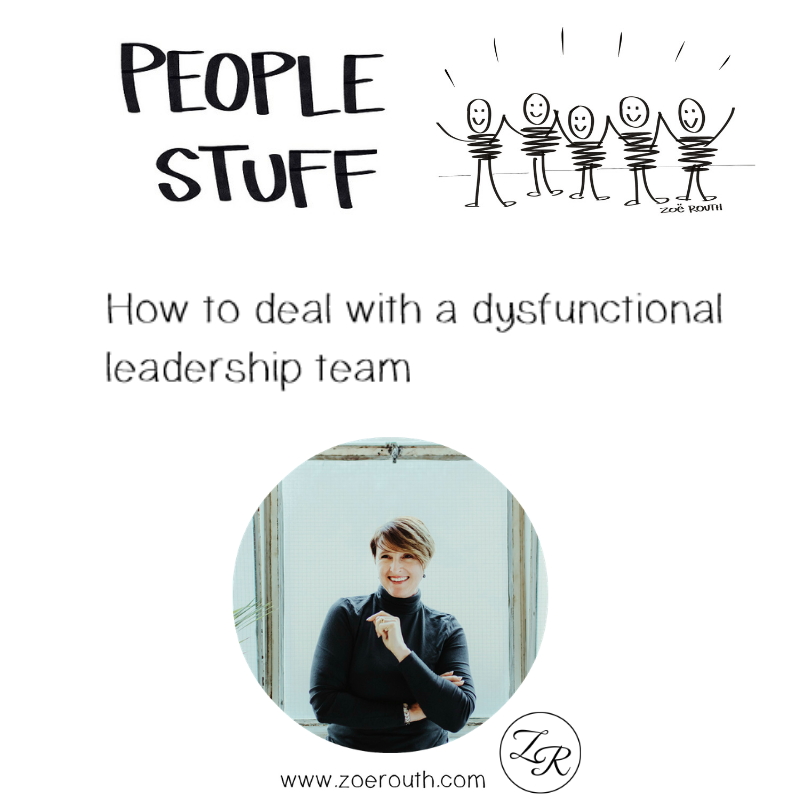“I don’t care about people. I’m just not interested.”
This was a statement from Greg, senior leader I worked with a few years back about his priorities at work. It’s a stunning admission. Perhaps even more so because his colleagues were neither surprised nor disturbed by it.
In this workplace, results and deadlines reigned supreme. It was a high pressure, fast-paced environment with a sink or swim ethos. Everyone watched the numbers ruthlessly: sales, profits, expenses. It was the only metric that mattered.
The effect? They churned through staff. Engagement surveys showed paltry results time and time again. Stress leave was on the rise. This in turn affected bottom-line results. The CEO then put the pressure on to lift their game. The leaders became even harder task masters.
On the leadership team itself, the relationships were civil, reduced to necessary interactions only. They had sharp elbows to edge ahead of each other, and maintained protection of their silos. It was dog eat dog, take no prisoners.
They knew things weren’t ideal. Looking at the engagement survey, they admitted begrudgingly they might have to do something about the people stuff.
A surface response would be to tweak the work conditions: a bit more leave, a few pay increases, introduce more frequent performance reviews.
I take a different approach.
I like to look at the systems running the business. These include reporting practices, accountability structures, and meeting habits. Most importantly I dig under these to look at the BELIEFS that are really driving the ship.
Beliefs are like software: it’s programming that dictates behaviour. And behaviour produces results.
In any workplace, there are dominant beliefs held by the leaders that determine the pace and focus of work.
In Greg’s leadership team, the dominant belief was Results Are King. On the face of it, this does not look problematic. Every business needs to produce results otherwise it does not exist. Fair enough.
It’s when results become the ONLY thing that the leadership team focuses on you get into trouble.
When it comes to dysfunctional leadership teams, often there is a cluster of beliefs around results that generate the unhealthy competitiveness.
Dysfunctional belief cluster 1: Get results in spite of people.
In this paradigm, leaders believe that people are essentially lazy and incompetent until proven otherwise. Trust is earned very slowly and lost quickly. There is a huge expectation that people arrive ready to work hard, take initiative, be problem solvers, and be accountable if they stuff up. On the face of it, these are not entirely unrealistic expectations. With these overt beliefs however, the culture created is one of fear: perform now or you’re out. It’s sink or swim. Many sink.
Dysfunctional belief cluster 2: Get results regardless of people.
This is the hard work paradigm. It includes the culture of busy, the ‘who’s working hardest’ competition, and the overwork badge of honour. While there is something noble in being part of a hard-working group, something exciting about a team that is ALL IN, there are some downsides too. There is an expectation that work is the dominant and exclusive priority in people’s lives and people need to adjust accordingly. This leads to burnout and martyrdom. And this in turn affects results.
Alternative belief cluster 1: Get results through people.
Teams like Greg’s have had some success by acknowledging that doing the people stuff gets better results. The attitude is often begrudging and reluctant for these folks. After all, taking time out to do people stuff is taking time out from doing the ‘real’ work and generating tangible outcomes. Smart leaders work out that if they do the people stuff, the results actually get better. People are more enthusiastic, feel appreciated, feel acknowledged. This is the first base for engagement, and an exponential leap in a healthier company across all measures, not just the financial ones.
This is why I always advocate: PEOPLE FIRST, TASK SECOND. A little bit of people stuff goes a long way. It’s Pareto’s principle at play: 20% effort in the people space will generate 80% of the results. Try it.
Alternative belief cluster 2: Get results with people.
This belief is the hallmark of a People First workplace culture. When we focus on getting results WITH people, we see folks as co-creators, co-contributors, and an infinite resource of creativity and collaboration. Ideas abound, energy is boundless, and results compound. We have to believe that people matter. We need to be curious and interested in them. We want to create a place where people belong, where they feel welcome and wanted. Where they are treated firmly and fairly. A place where they can thrive and grow.
People First Workplace Cultures are rated Best Places to Work and have the bottom line results to match.
So, if you have a dysfunctional leadership team, you might start with asking which belief cluster is running the show. What is the impact of that? What are you prepared to give up in order to gain the benefits of being more people focused?
***


